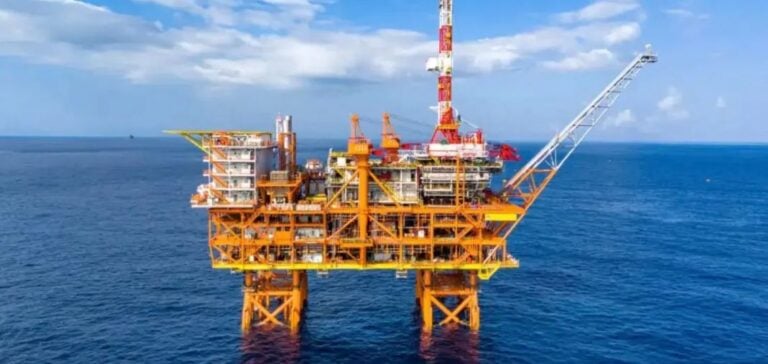The oil group CNOOC Limited announced on December 1, 2024, the launch of production for the Huizhou 26-6 oil development project. Located in the Pearl River Mouth Basin, this site operates at an average depth of 110 meters. This project is part of a strategy to exploit deep reservoirs, a first for the company in the South China Sea region.
The main installations include a new smart production and drilling platform, along with the FPSO (floating production, storage, and offloading unit) “NAN HAI FEN JIN,” specially modified to meet the project’s specific needs. Nineteen development wells are planned, including two for oil production and 17 for gas production. Maximum output is expected to reach 20,600 barrels of oil equivalent per day by 2027.
Innovative technologies for optimized operations
The project relies on advanced technologies, including the first offshore smart drilling platform built in China. This innovation aims to increase efficiency and reduce extraction costs in complex environments. By combining this infrastructure with an adaptive FPSO, the project highlights the company’s ability to meet growing energy needs while tackling geological challenges.
Economic and strategic impact
The extracted products, primarily light crude oil and natural gas, will play a key role in meeting energy demands in the Guangdong–Hong Kong–Macao Greater Bay Area. This project also strengthens CNOOC Limited’s strategic position as a major player in offshore energy development in China.
By integrating these new technologies into its operations, the company not only maximizes the potential of its resources but also supports the economic and social growth of this strategic area.






















